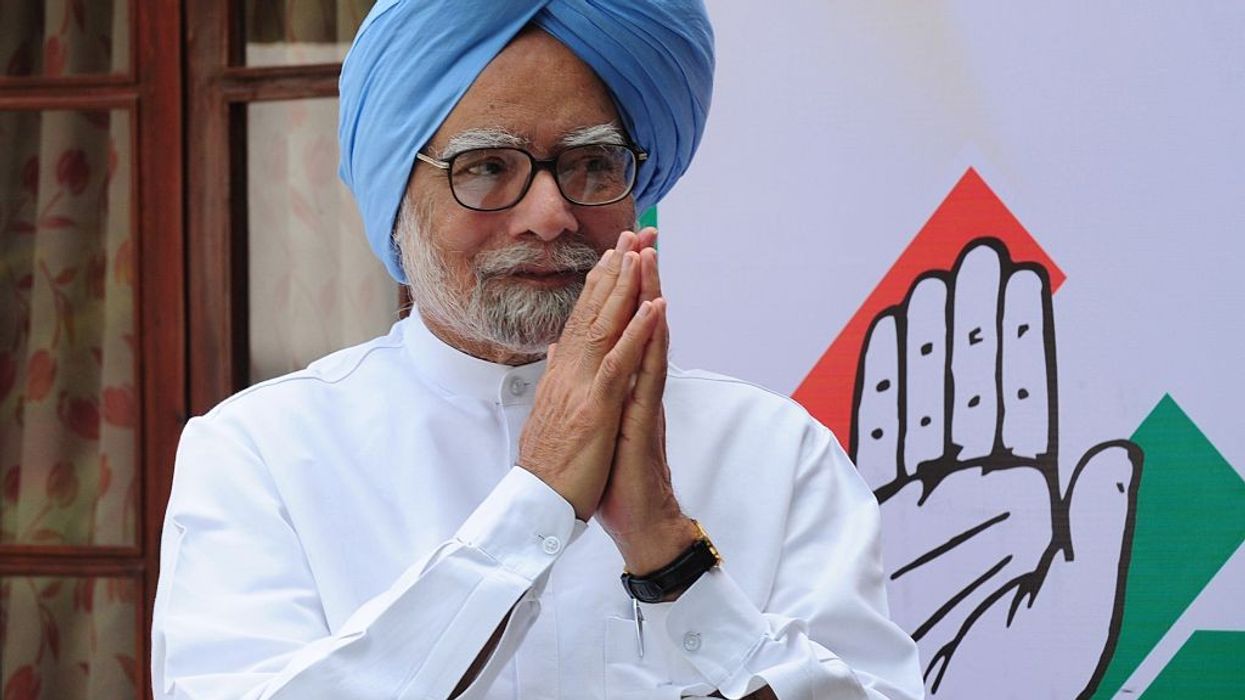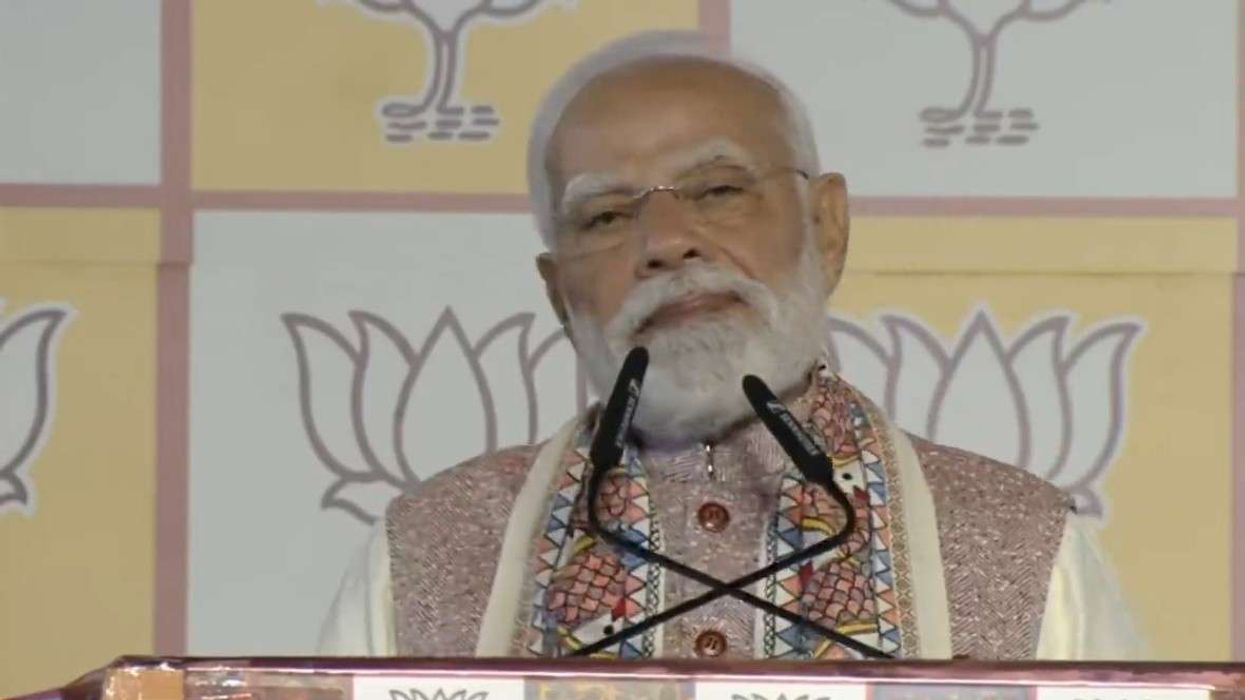India's former prime minister and architect of India's economic reforms Dr Manmohan Singh has exited public life with his retirement from the Rajya Sabha.
Soft-spoken, erudite, and modest, Singh (91) exited public life without any fanfare, somewhat akin to how this reluctant politician entered it 33 years ago.
The man who famously spoke of studying under the dim light of kerosene lamps in his village without electricity had a storied academic career.
Born on September 26, 1932, in Gah village in what is now Pakistan's Punjab province, Singh received his Bachelor's and Master's degrees in Economics from Panjab University in 1952 and 1954 respectively and completed his Economic Tripos from Cambridge University in 1957.
He followed this with a D.Phil in Economics from Oxford University in 1962.
Singh went on to teach at Panjab University and the Delhi School of Economics before he joined the Government of India as an Economic Advisor in the Commerce Ministry in 1971. He was soon promoted to Chief Economic Advisor in the Finance Ministry in 1972.
After a short stint at the UNCTAD Secretariat, he was appointed Secretary General of the South Commission in Geneva from 1987-1990.
In addition, Singh also held the positions of Secretary in the Finance Ministry, Deputy Chairman of the Planning Commission, Governor of the Reserve Bank of India, Advisor to the Prime Minister and Chairman of the University Grants Commission.
Political career
Singh was made the finance minister in the Narasimha Rao-led Congress government in the early 1990s and continued till 1996.
During this stint, he was hailed for putting India on the road to liberalisation and rapid economic growth.
"No power on earth can stop an idea whose time has come. I suggest to this august House that the emergence of India as a major economic power in the world happens to be one such idea," Singh said while ending his iconic budget speech in Parliament in July 1991.
He later went on to become prime minister for two terms from 2004 to 2014 after Sonia Gandhi declined requests from the Congress party for the top job.
She named Singh for the post and their partnership continued for a decade till the BJP won power in 2014.
Under his stewardship, India witnessed the highest growth rate averaging 7.7 per cent to become a nearly $2 trillion economy when he helped it catapult into an economic power and helped raise the living standard of millions.
At the core of Singh's idea of India was the belief in not just high growth but ensuring inclusive growth, which was enshrined in the passage of several key legislations that ensured citizens the legal Right to Food, Right to Education, Right to Work and the Right to Information.
However, Singh was criticised for turning a blind eye to allegations of corruption during his 10-year tenure as Prime Minister.
BJP leaders often accused him of not speaking out against corrupt leaders in his cabinet.
During the fag end of his tenure as PM in 2014, Singh had said, "I honestly hope history would be kinder to me than the contemporary media, or for that matter, the opposition parties in Parliament."
Singh remained a member of the upper house of the Parliament - Rajya Sabha for six terms and was among the five members whose tenure ended on Wednesday.
He could never become a member of the lower house - Lok Sabha, and had unsuccessfully contested an election in 1999 from South Delhi.
Of late, Singh had not been keeping well and was often seen attending Rajya Sabha proceedings, especially during crucial voting, in a wheelchair.
Rich tributes
During the farewell for retiring members of the Rajya Sabha, Prime Minister Narendra Modi lauded Singh's role as a member of the upper house and said his contributions would never be forgotten.
Vice President and Rajya Sabha chairman Jagdeep Dhankhar paid a personal visit to Singh's residence on Tuesday.
Congress president Mallikarjun Kharge also visited Singh and lauded his achievements in Parliament. He said in a letter that he would remain a "hero" to the middle class and the aspirational youth.
Shiv Sena leader Priyanka Chaturvedi has also hailed Singh's leadership and described him as the finest person with the brightest mind. (PTI)













